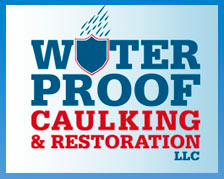If you own a business, you know how important it is to work out of a building with a tidy and well-maintained exterior. Your building – which includes its masonry – is often the customer’s first impression of your business. Damage to the building’s brickwork or stone may convince customers that if you’re not taking care of the property where you work, then you may not be taking the best care of your own products, services, or clientele, either. The good news is that masonry damage is preventable. Even if you weren’t able to prevent masonry damage this time around, it can still be repaired. Here is what you need to know about identifying and repairing the common causes of commercial masonry damage.
Failure Of The Bonding Material
Masonry, such as stone and bricks, are bonded together using a material known as mortar. When the bonding material has worn out or started to chip, your masonry may be on the path to falling apart. The problem with damaged mortar is that, if neglected, it can prevent the masonry bricks from evenly distributing the weight of your building. Over time, this can cause serious structural damage to your building.
Because mortar wear and tear is one of the most common types of commercial masonry damage, it is critical to schedule regular inspections to check around your building for signs of damage to the condition of the mortar. If you find damaged mortar, it can be repointed. Repointing repairs your masonry so that your bricks and stones can continue to distribute the building’s weight, while also remaining sturdy and structurally sound for as long as possible. Pay special attention to mortar in areas that are exposed to significant amounts of moisture (such as near the ground or gutters), as well as the mortar that is often exposed to freezing (such as shadier areas where winter snow tends to build up for an extended period of time before melting).
Masonry Shifting And Displacement
Depending on how the rest of your building is faring, your masonry may become damaged due to a lack of structural support elsewhere. If the steel systems holding your structure together become damaged, or if the anchors that hold everything in place begin to shift or break down, your bricks can start to shift, bulge or sag.
Moisture is the most typical cause of masonry shifting and displacement, but it can also arise when the ground settles beneath the building’s foundation. If you have pests, such as termites, that are eroding wooden structures, then this may also cause you to experience masonry shifting.
Intrusion Of Moisture
Moisture is one of the most common causes of commercial masonry damage, and its presence can become evident in a variety of ways. You may not even realize that moisture is a problem until you are experiencing a severe mold breakout that has compromised your inner walls. Moisture also expands and shrinks as part of the normal heating and cooling cycle of the seasons. Over time, this constant change can dislodge bricks or weaken mortar.
The good news is that an expert can help you identify the areas that are responsible for moisture intrusion, and then patch them. Repointing the mortar, which keeps the mortar strong and properly applied, revitalizes the mortar’s ability to protect against damp, humid climate conditions. It can better prevent water from seeping in between bricks or stones.
Left untreated, moisture can cause your walls to sag and bulge. Without repair, these compromised walls could eventually collapse.
Cracks Resulting From Pressure
When crucial structural elements such as mortar and anchors begin to fail, the building can no longer properly distribute all of its weight. That means that some sections of the masonry work will begin to take on a heavier load than they were built or rated for. Improper weight distribution can result in cracking and crumbling, which in turn leads to major structural damage if left unaddressed.
In other words, these issues are cumulative: the worse you allow it to become, the faster the damage will develop and spread. Moisture is, once again, a common culprit behind this issue, but even something as simple as improper mortar installation, or natural disasters like earthquakes, can lead these problems to accelerate.
Trust The Experts To Help You Keep Your Commercial Masonry In Good Repair
Mortar failure, natural disasters, unevenly applied pressure, moisture intrusion and more are just a few of the many possible causes of damage to your commercial masonry. It is essential that you regularly evaluate your building for damage, and an expert can help you to do this and keep up with a maintenance schedule. The pros at Waterproof Caulking & Restoration would be happy to work with you to identify commercial masonry damage and repair it as soon as possible. Reach out to learn more or to schedule an appointment to get started.
